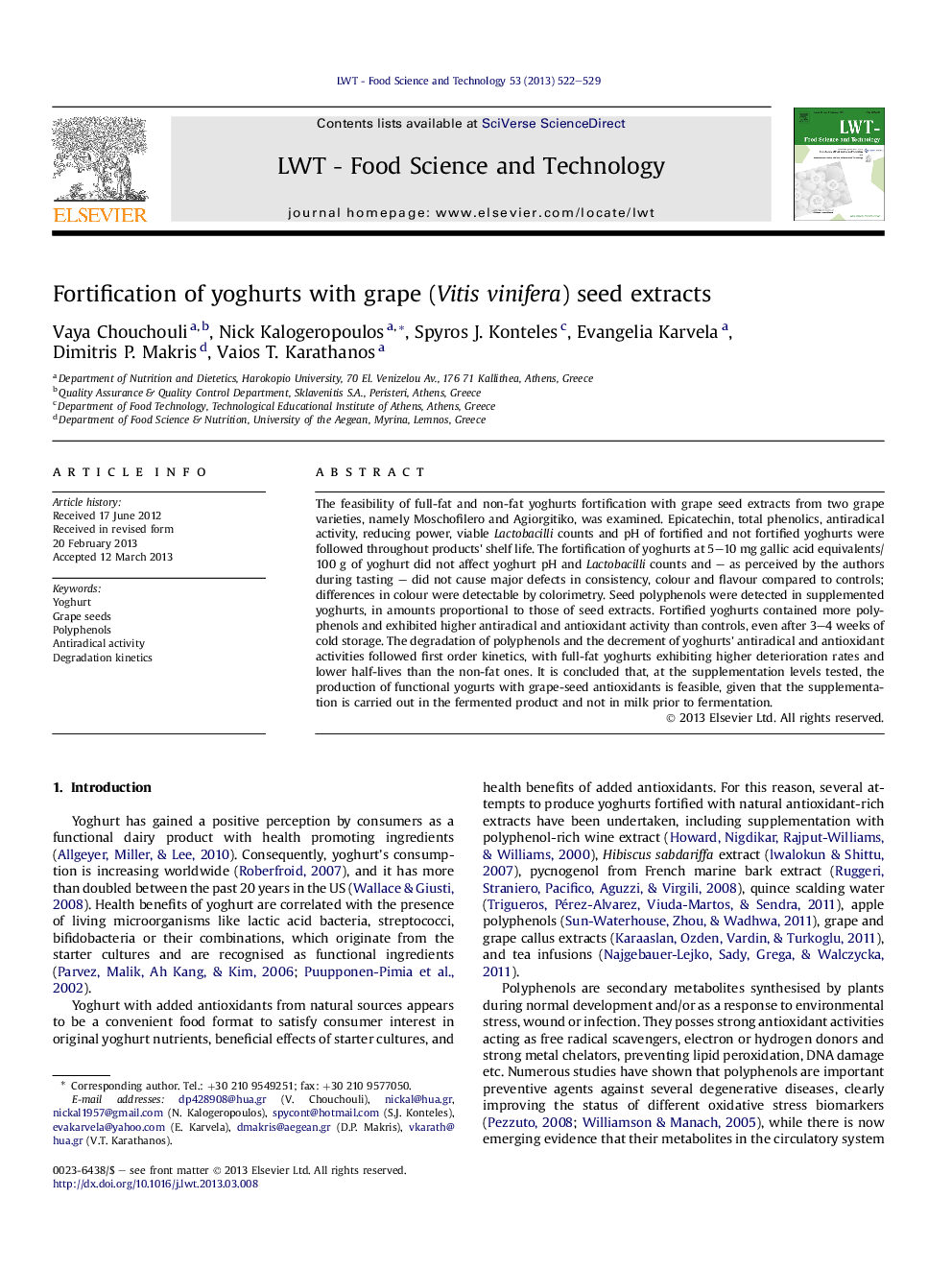| Article ID | Journal | Published Year | Pages | File Type |
|---|---|---|---|---|
| 6404449 | LWT - Food Science and Technology | 2013 | 8 Pages |
â¢Full-fat and non-fat yoghurts were supplemented with grape seed extracts.â¢Supplementation did not affect yoghurts pH and Lactobacilli counts.â¢Supplemented yoghurts had seed polyphenols (PP) & exerted antioxidant activity (AA).â¢PP and AA reduced with storage time following 1st order kinetics.â¢At the end of their commercial life, yoghurts still contained PP and exerted AA.
The feasibility of full-fat and non-fat yoghurts fortification with grape seed extracts from two grape varieties, namely Moschofilero and Agiorgitiko, was examined. Epicatechin, total phenolics, antiradical activity, reducing power, viable Lactobacilli counts and pH of fortified and not fortified yoghurts were followed throughout products' shelf life. The fortification of yoghurts at 5-10 mg gallic acid equivalents/100 g of yoghurt did not affect yoghurt pH and Lactobacilli counts and - as perceived by the authors during tasting - did not cause major defects in consistency, colour and flavour compared to controls; differences in colour were detectable by colorimetry. Seed polyphenols were detected in supplemented yoghurts, in amounts proportional to those of seed extracts. Fortified yoghurts contained more polyphenols and exhibited higher antiradical and antioxidant activity than controls, even after 3-4 weeks of cold storage. The degradation of polyphenols and the decrement of yoghurts' antiradical and antioxidant activities followed first order kinetics, with full-fat yoghurts exhibiting higher deterioration rates and lower half-lives than the non-fat ones. It is concluded that, at the supplementation levels tested, the production of functional yogurts with grape-seed antioxidants is feasible, given that the supplementation is carried out in the fermented product and not in milk prior to fermentation.
